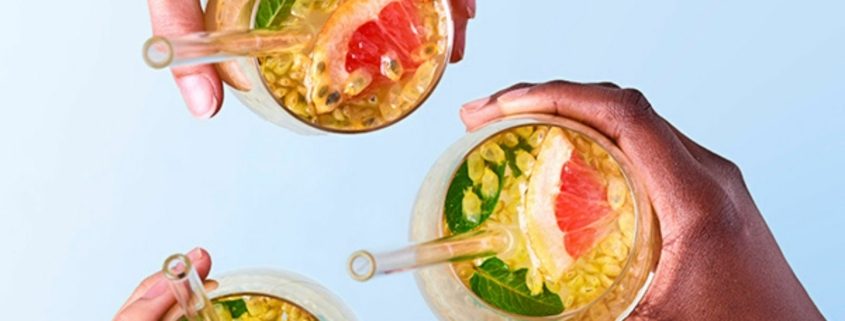Drinking Straw: What interests? Should I avoid using it?
Many individuals question whether or not using straws to sip a beverage adds any benefit. Some people even question if using a drinking straw is healthful (to drink).
What is the drinking straw and why use one?
We’ve all gotten used to drinking through a straw, especially on the balcony or at gatherings. But why sip via a straw?
First and foremost, the straw makes drinking easier. Indeed, we may simply depart for work while walking quickly and sipping our drink through a straw. We’d have to stop and take a sip if we didn’t have the straw. The world goes fast, and sipping with a straw is a convenient way to save time.
Straws are also commonly used in medical settings for ease of drinking or to reduce respiratory problems.
Drinking using a straw also helps to avoid direct contact with possible microorganisms. This is especially true at night. The glasses at a nightclub are connected, and the cleaning may be quick at times. Using a straw can help to avoid direct contact with microorganisms.
Finally, the straw relates to the party, the summer, and the holidays. They can have surprising colors, tastes, textures, and sources of unique sensations.
Why avoid drinking via a straw?
A straw is not required, but it is a common item. However, straws have recently been condemned, and many articles encourage us to avoid drinking with a straw. But why?
Simply said, straws were formerly and primarily composed of plastic. And plastic straws are harmful to the environment: throwaway straws for beverages are thrown away after use and are seldom recycled. They frequently wind up on the street or on the beach. Several million plastic straws are currently in the water, contaminating the ocean and endangering animal life. As can be seen, the usage of plastic straws must be prohibited. We may either cease using them or replace them with eco-friendly and biodegradable alternatives. But what are the alternatives?
Which plastic-free drinking straw to choose?
Plastic straws’ negative environmental consequences have been sufficiently emphasized to compel governments to take action. Plastic straws will be prohibited from January 1, 2021. Government engagement has been critical in the battle against plastic and the preservation of our world.
We describe here the ecological alternatives available to replace them:
- Natural disposable straws manufactured from wheat stalks (field straw) or vegetable flours. These are organic and biodegradable alternatives. There is no need to be concerned about the product’s environmental impact or concerns.
- Edible straws composed of apple paste or fibers: they are novel solutions that may be enjoyed while drinking. A true ZERO WASTE solution that is not harmful to the environment.
- Reusable biodegradable straws made of bamboo and reed, or recyclable straws made of stainless steel and glass: these are portable options. It may be used at home, with family and friends, or even at restaurants. It’s simple to clean and transport.
The need for assistance in avoiding the usage of plastic drinking straws is real. I appreciate your assistance. But don’t worry, you’ll always be able to utilize this helpful and festive addition (for your birthday, lecture, or party), because true inventive alternatives with little or no environmental effect exist. The preservation of nature is critical; this struggle is a team effort.
If you decide to go forward with your order, the French firm Drinking-straw.com will transport your solutions and disposable kitchenware throughout Metropolitan France as well as all European nations (shipping costs are attractive). Our large selection, variety of materials and colors, and affordable prices will help you to choose the perfect drinking straw for you!




Leave a Reply
Want to join the discussion?Feel free to contribute!